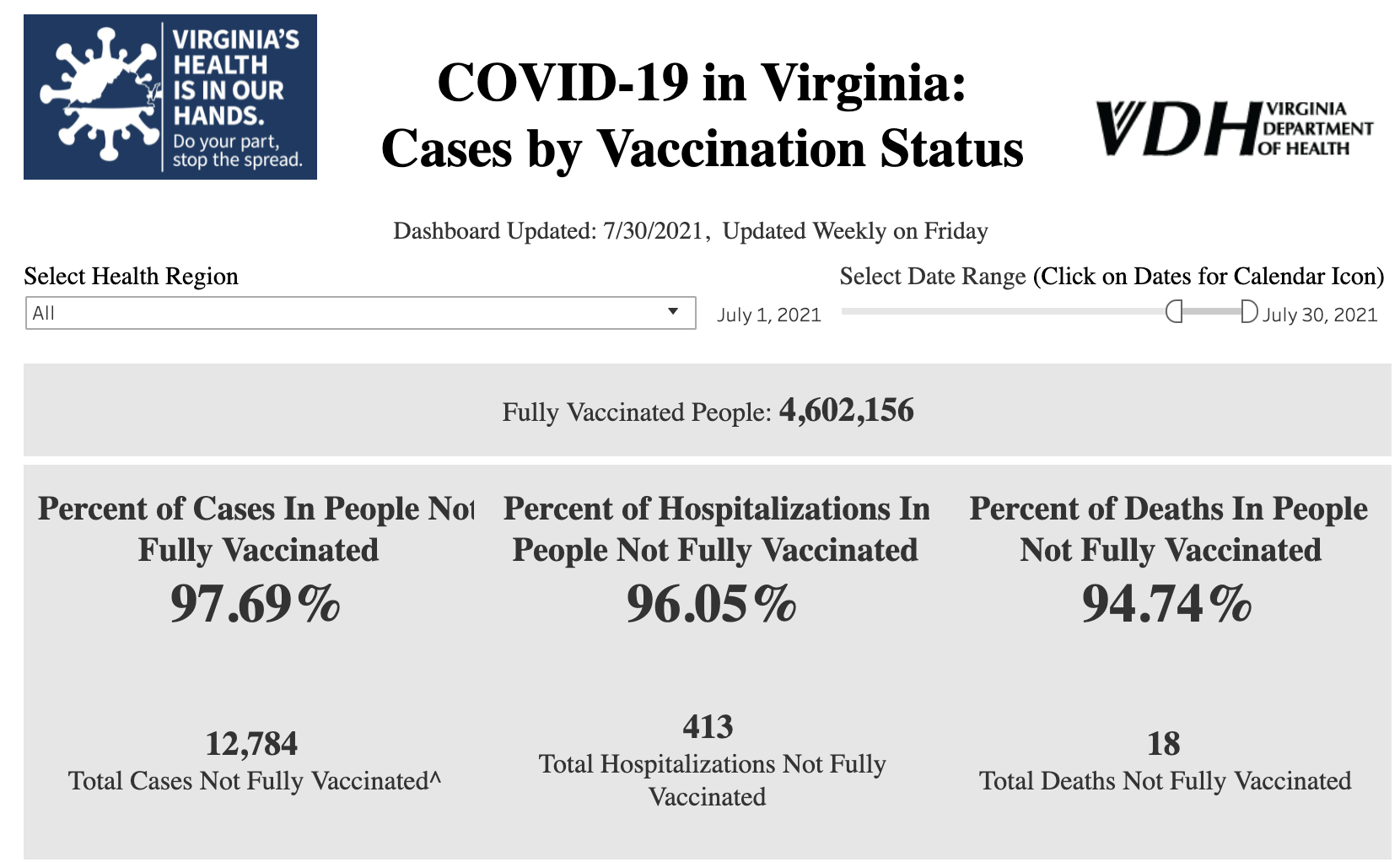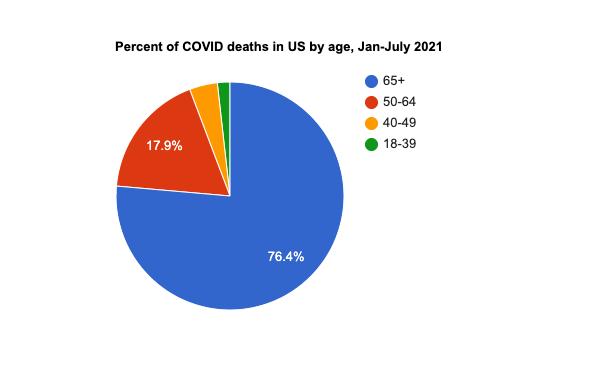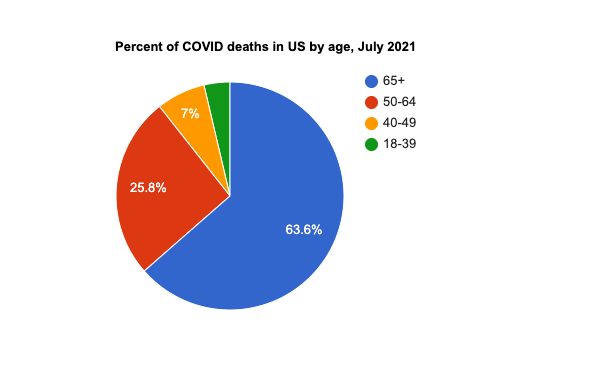Do vaccines work against the coronavirus delta variant?

Source: Virginia Department of Health https://www.vdh.virginia.gov/coronavirus/covid-19-data-insights/covid-19-cases-by-vaccination-status/
Delta, delta, delta. CDC internal reports. Breakthrough infections. Masks? Surge? You have questions. I have information, and some speculation.
Do the vaccines work against the new delta variant of the SARS-CoV-2 coronavirus?
Some key points:
1. 4th surge: Here are graphs (source) of the number of newly diagnosed COVID cases per day, and the 7-day average of COVID hospitalizations in the US. As you can see, we are in a period of steep increase, the fourth such surge in the history of this pandemic.

2. Delta is way more contagious than any other version of the coronavirus. According to recent Senate testimony by the director of the CDC, “the delta variant now represents 83% of sequenced cases.”
3. Is it also deadlier? I don’t think so. It’s hard to put a solid number on that—so many confounding variables—but I haven’t seen any data to suggest that delta kills people at a significantly higher rate.
What HAS changed is the age range of victims.
Using data from the CDC https://www.cdc.gov/nchs/nvss/vsrr/covid_weekly/index.htm I made the calculations for these pie charts. By comparing data from all of 2021 versus deaths in just the past month, you can see the shift of deaths into younger people. This does not necessarily mean the virus has become more lethal for the young. It probably reflects the very high vaccination rate among the elderly.


Which brings me to my final point:
4. Do the vaccines work?
“Work” is a word like “safe.” People use these words as if they had an absolute value, but they’re actually not well defined. What exactly do you mean, and compared to what? In the case of vaccines, there are two big categories of what it means to “work.”
- Does the vaccine protect you against severe illness and death?
At the top of this post are recent data from the Virginia Department of Health that show how even in the time of delta, vaccines work very well. In the month of July, “breakthrough” cases (COVID in people who are fully vaccinated) accounted for only about 1 in 20 cases. 96% of COVID hospitalizations, and 95% of COVID deaths, were among people who were not fully vaccinated.
- Does the vaccine make it less likely you will transmit the virus to others?
Before the delta variant took over, the answer was definitely YES! Now that delta is here, the answer is probably a lowercase yes. It’s a quantitative thing: how much less likely? I haven’t seen a proper study on this—we are too early in the evolution. Anecdotal data tells us that fully vaccinated people CAN carry and transmit the delta variant to others. This is not a surprise given how infectious delta is. However the data from Virginia (above) show that vaccination has a significant effect nevertheless.
So…do the vaccines “work” against the delta variant?
If you don’t want to die of COVID, the answer is yes.
If you don’t want to spread the virus to others, the answer is yes.
If you expect a vaccine to completely eliminate all breakthrough infections and deaths, the answer is no. And you shouldn’t bother getting any other vaccines or medical therapy, because none is 100%.
Practical implications
Now we leave science and talk about values. Cases and hospitalizations and deaths are all rising. What should we do about it?
I’ve maintained since early 2020 that our #1 goal should be to protect the health care system. While some hospitals and certainly many individual ICU workers are under strain, I don’t think this surge will overwhelm the system. First of all, it’s summer, and I think the warm weather (for several reasons) protects us somewhat. Second of all, because of vaccination, the number of vulnerable people out there is a fraction of what it was in 2020—especially given the high vaccination rate among the elderly. My crystal ball predicts this surge will run hot and fast. I think a huge number of people right now are spreading the virus, many more than we are counting. That means I think we’ll see a plateau and decrease fairly quickly, no matter what we do. (That seems to be what happened in India. We don’t always know why.)
I fully endorse masking indoors. It’s not a panacea, but it’s a cheap and easy way to improve our odds. I would not endorse much else in the way of general restrictions, because for me the cost-benefit doesn’t work out. Sure, I’d like to bring down the case number to protect the vaccinated from further mutations in the virus. I hate to see the workplace disruption at hubby’s hospital, where breakthrough infections among fully vaccinated staff who test positive are sent home for ten days. (I predict health care workers will seek booster shots at 1 year.) But restrictions have costs. In particular, I will be horrified if schools don’t bring kids back. The cost to society of remote schooling is, in my value system, far greater than the cost of COVID at a time when effective vaccines are available to anyone over the age of 12 who wants one.
Have you been vaccinated yet? Every American age 12 and up is now eligible.
In California, visit https://myturn.ca.gov/ to find appointments for a FREE vaccine near you.
Amy Rogers, MD, PhD, is a Harvard-educated scientist, novelist, journalist, and educator. Learn more about Amy’s science thriller novels, or download a free ebook on the scientific backstory of SARS-CoV-2 and emerging infections, at AmyRogers.com.


